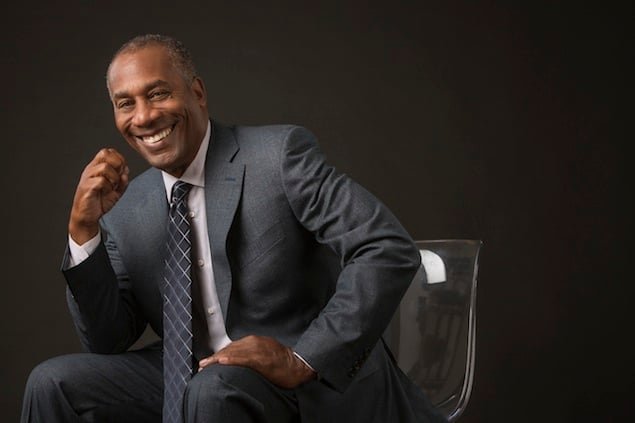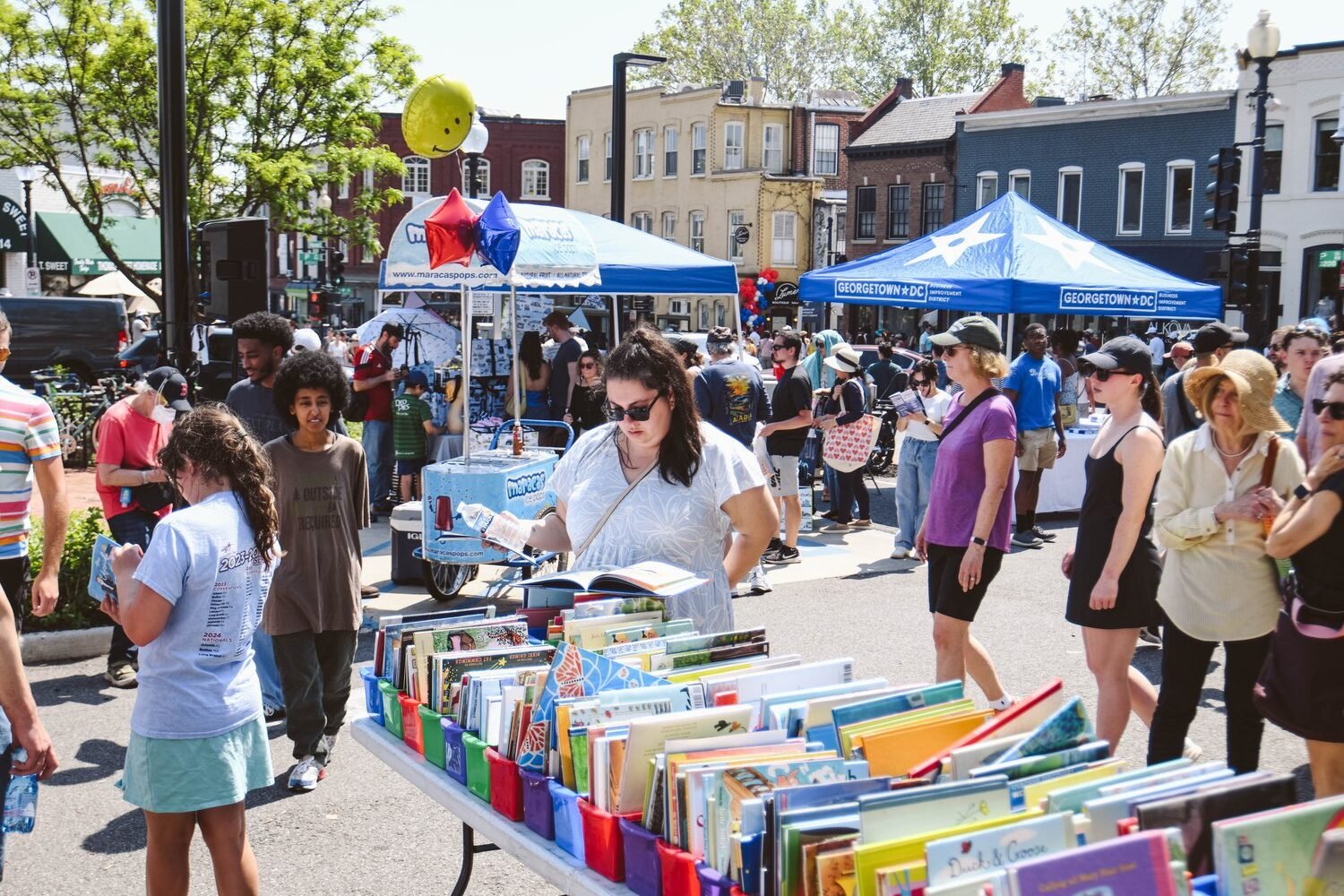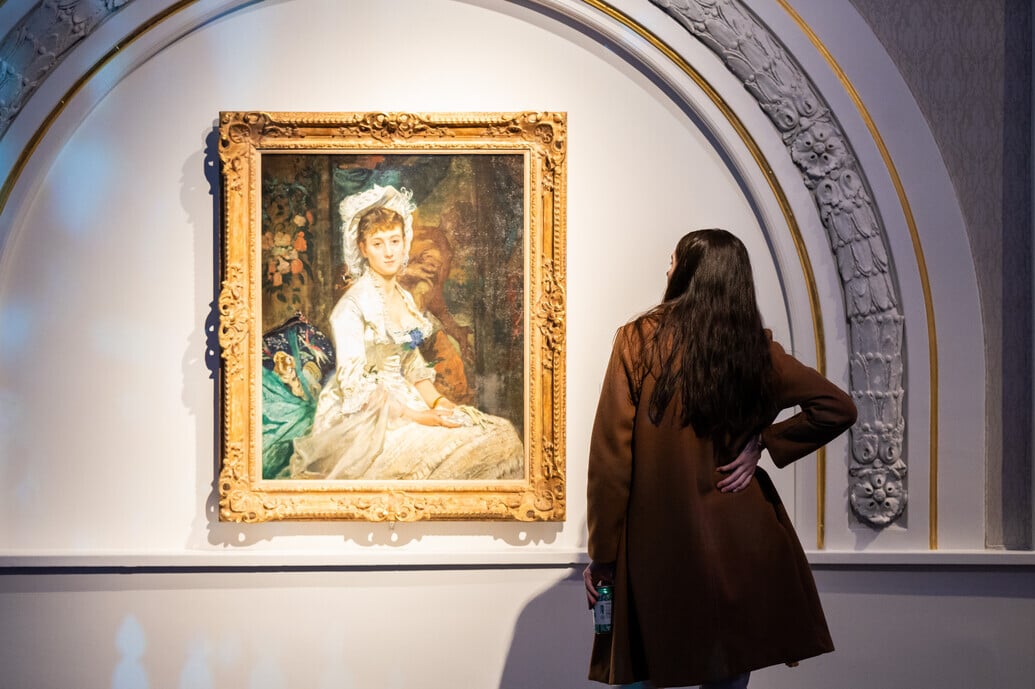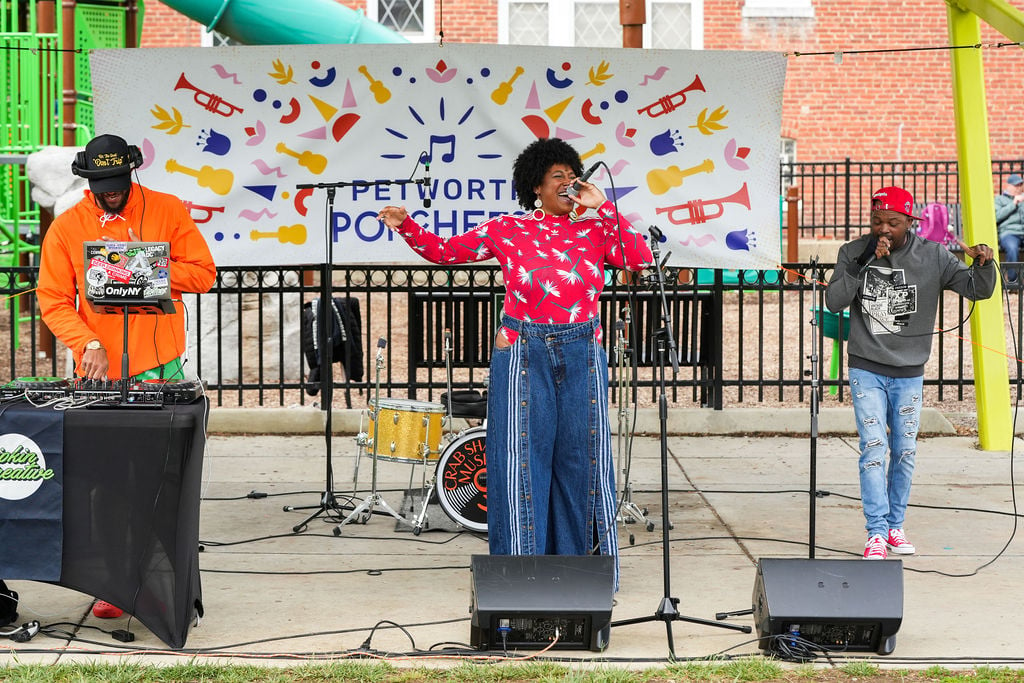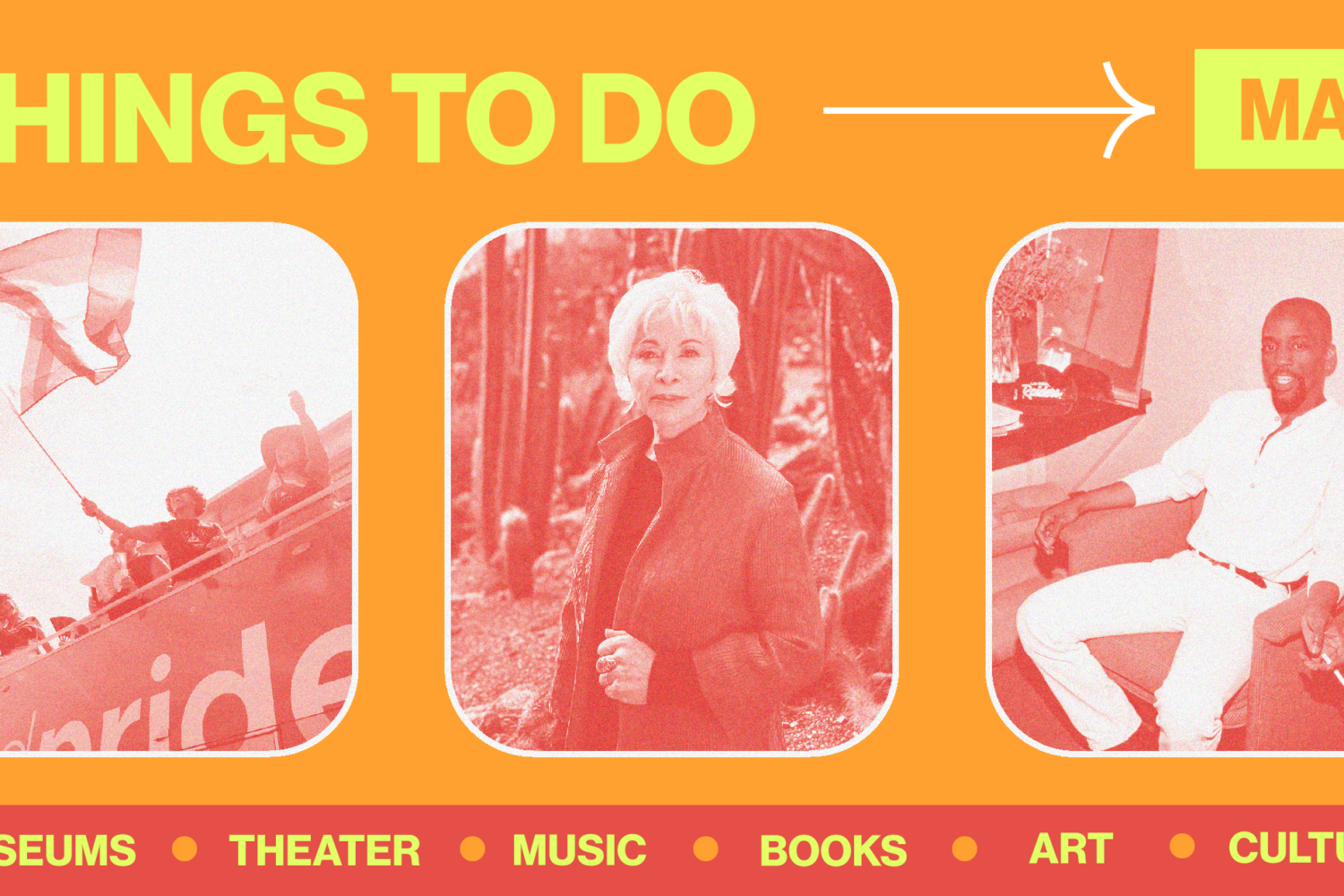It would be easy to say Joe Morton’s not a bad guy, he just plays one on TV. The 66-year-old actor was introduced toward the end of season two as Command, the ultra-scary head of shadow government B613—and then revealed in the season finale as Olivia Pope’s estranged father, Rowan Pope. But before his twisted relationship with his daughter could be fully explored, Shonda Rhimes brought in an even more formidable villain—Rowan’s long-thought-dead wife, Maya—which made even an all-powerful government operative whose business is to terrify and manipulate everyone around him seem somehow not as bad.
Morton is a veteran actor with a career spanning stage, screen, and multiple decades—including a run at Arena Stage in the 1970s as Walter in Raisin, a musical adaptation of the play A Raisin in the Sun. He was in Washington earlier this month as a presenter for the annual BET Awards, and we chatted with him by phone about the serendipitous way he snagged his Scandal role, what he likes about his bad-guy character, and the relationship advice he’d share with the real Olivia Pope.
What’s on the agenda while you’re in town?
I think we’ve managed to get a VIP White House tour, then there’s an honorary dinner for BET that night, and then the awards on Saturday.
You’ve performed in town before, at Arena Stage—what memories do you have of your time in DC?
When we were bringing Raisin onto Broadway, our first stop was at Arena in DC. Several things struck me about being in DC: One was the enormous poverty around the capital at that time—it was 1973, ’74—and I was stunned by people literally living in poverty, with holes in their houses and other things. So that part was not very much fun, but doing the show was; Arena is a beautiful theater, and it was a great experience. What I always remember was in Raisin, when Bobo came onstage to tell Walter Lee that the money had been absconded—we had an audience filled with ex-cons, and guys in some cases who were still in prison—so when Bobo walked onstage, they all started yelling, “Here it comes, here it comes!” It was a great time in Washington; I always enjoyed being at the theater.
Washingtonians are eagerly anticipating the return of Scandal. Can you tell me anything about what to expect when the show comes back?
We don’t really know what’s going to happen until we get our scripts, so there are lots of revelations. There’re lots of things you’re gonna see that I think will surprise you, none of which I can tell you anything about. [laughs] But I think there are lots of really incredible surprises coming your way.
How much in advance do you actually get the scripts?
Well, for instance, we’re just finishing an episode as of tomorrow, and we’re having a table read for the next episode today, so that’s the first we’ll hear of what the next episode is about.
How did you get involved in the show?
It really was a fortune of circumstances. I was out [in LA] at the end of the season last year, and I had heard of the show and obviously knew who Kerry was, and I started watching on Netflix. I really loved the writing, really loved the way it was shot, the way it was directed, so I thought, “I wonder if there’s a way I can find my way as a guest onto the show.” But before I had an opportunity to talk to any of my representation, my agents or managers or whomever, they called me and said the show had called them asking if I wanted to do a part on the show. So I put it out there in the air and somehow it managed to make its way back.
What did you know about your character before you started filming?
The biggest thing I knew, which at that time no one knew, was I was going to be discovered—or revealed, I should say—as Olivia’s dad at the end of season two. For all six episodes at the end of the season, I knew that’s where we were headed, but I could not tell anyone, including Kerry.
Rowan is such an interesting character because he’s such a bad guy in so many ways but has deep conviction that he’s doing the right thing. What do you like about playing him?
I think he’s becoming a kind of a channel for Shonda to say certain kinds of things about the world of the show and the world in general that other characters aren’t at liberty to say. The opening monologue, for instance, at the beginning of this season, “You have to be twice as good to have half as much”; or the last thing you saw before we went off the air, where I’m sitting there in chains and a T-shirt, calling a Southern Republican President a boy because of his upbringing and wealth—those things are my favorite about the character. He seems to provide a certain kind of truth about the world we live in in a different way from the other characters.
That racial commentary has been a big part of the conversation since the beginning of Scandal, with Shonda Rhimes as one of the few black female showrunners in Hollywood and Kerry Washington as one of the few black female leads on network TV, but it’s seemed more subtle until Rowan showed up and started saying explicitly, “This is how the world works.”
I think it’s been subtle in some ways and not so subtle in other ways. What Shonda’s done is put two black characters out into the world that we’ve never seen on television before. One is clearly Olivia Pope; we haven’t seen a black female character in 40 years, and certainly never one with the kind of power, or even fashion, that this particular character has. And then along comes her father, who’s for all intents and purposes the most powerful man in the United States—that’s something we’ve never seen before. We’ve seen a black President, with Dennis Haysbert in 24, but this guy is the power behind the President, more powerful than the President because of what he’s capable of doing and what kind of resources he has at his command. Certainly a lot of that for an African-American audience is very important and very powerful.
Where do you find inspiration for the character beyond what the script provides?
I drew a little bit from Ralph Ellison’s Invisible Man—when the character Bledsoe tosses the invisible man out of school at the beginning of that novel, he tells him to make sure he knows the lay of the land, to see everything around him and gain influence and power, and then stay in shadows and use that, and that’s kind of the mantra for Rowan.
I read an interview in which you said the important questions for understanding any character are what do you want, and to what extent are you willing to go to get it? Rowan to me still seems like such a mystery—what do you think his end goal is, and is there anything he wouldn’t do to achieve it?
Well, I think his end goal, his job, is to protect the republic, whatever that takes. There’s that scene in The Godfather when Al Pacino comes back from Italy and confronts his old girlfriend, and she says, “I thought you didn’t want to get involved with your family business.” He says, “My father’s just a businessman,” and she says, “Nobody else kills people to get what they want; politicians don’t kill to get what they want.” Pacino’s response is, “Look who’s being naive,” and I think it’s the same thing here: He, Rowan, will go to any means necessary to protect the republic. At the same time he’s gotta figure out how to protect and support his daughter, whom he obviously feels is involved in all the wrong relationships. He has a vision of her that’s brighter than what she’s doing at the moment.
People are so invested in the relationship between Olivia and Fitz even though it’s so dysfunctional. If you were the real Olivia Pope’s dad, what would you say to her?
I’d be saying along the same lines as Rowan is: Fitz is already married, so it’s a relationship that has no future. I agree with Rowan when he said [to Fitz] in the last episode that she’s just a door marked exit, and you never have to be the person your father wanted you to be by being with a woman you can’t be in politics with. [Fitz] is using her as a way out of responsibilities he maybe never wanted or now feels he can’t fulfill. So I’m on Rowan’s side as far as that relationship is concerned.
I noticed you tweet a lot about Scandal; were you on Twitter before you got on the show?
I wasn’t. Once I got on the show I realized the cast tweets live during a broadcast, so I thought, “If they invite me back to the third season, I’ll get on Twitter and start doing the same.”
What have you discovered from Twitter about how people are consuming the show?
It’s funny: We have so many shows and so many channels and so many things to occupy people as entertainment, especially with a show like Scandal, which is clearly a hit, with a lot of heat around it—but every once in a while people will say, “What are you doing?” and I’ll say Scandal, and they’ll have no idea what I’m talking about. So it’s interesting that TV today clearly has an audience that’s involved in their shows and fully invested; but there’s another part of the world, thank god, that is not quite as invested, not quite into television, that maybe just watch National Geographic and sports. I think that what’s great about these shows is they give us some escape and at the same time they’re just a show.
Scandal fans are so ardent it sometimes seems like they have trouble separating the characters and reality. Have you had any negative comments directed to you based on your character?
[laughs] Not yet. I think what’s interesting about Rowan is that from the very beginning people weren’t sure who he was or what he was about, but once it was revealed he’s Olivia’s dad, I think people’s response to it was he’s the kind of bad guy you love to hate. So that’s been a lot of fun. Once it was revealed my wife, Maya, could possibly be worse than I was, people let him off the hook a little bit.
Do you look for those roles that have an element of social commentary, or do you consider more what acting challenges it presents?
I think both. You want to be challenged, so you feel like you want to get up and wrestle with the character or enjoy the character—especially with a TV show, because you know you could be doing it for a long time, so you want to make sure it’s something you really enjoy. From a social point of view it’s always wonderful to have this other kind of agenda, that there’s a greater statement being made, a greater story being told other than what’s on the tube. I think very often, we’re addicted to procedurals, those good guy/bad guy shows, and the “problem” with procedurals is they all follow the same formula: The bad guy does his thing, the good guy goes after him, and in most cases the good guy figures out who did it and catches him. In many cases—I’m not saying in all cases—but in many cases there’s not a lot of interesting language involved in any of that. There’s interesting photography or characters in terms of their interactions with each other, but language is the other thing I really look for. I love things with language; I think that’s probably because I come from the theater.
You’ve had so many roles over your long career—theater, movies, TV. Do you have a favorite?
I think my favorite still to date is The Brother From Another Planet, I think because one, I like John [Sayles]’s writing in terms of social commentary; two, from an acting standpoint—he had no facility for speech, so I had to use not just my face but my whole body to communicate things, and he represented a lot of African-Americans in the world who have talents and no channels through which to exhibit or take advantage of their own talent. So it’s still, for a lot of reasons, my favorite film and my favorite character. Now I say that with this caveat: Every time actor takes on a new role he or she enjoys, for all intents and purposes, that becomes a favorite; it’s like giving birth all over again. In retrospect, Brother From Another Planet is my favorite; in the moment, it’s Rowan, because I’m having such a good time playing him.

